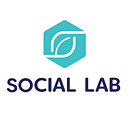Bring your own container (BYOC)
A small step to reduce single-use plastic
Our last article emphasized the importance of avoiding single-use plastic (SUP) as a key element of sustainable shopping. It also recommended measures such as carrying own bag for shopping, local buying and buying in bulk for reducing the SUP consumption. Notably, carrying our bag is impactful when we are purchasing a few homogenous items (e.g., vegetables, fruits, etc.), however, it poses a challenge for the purchase of heterogenous grocery items such as grains, sugar, oil, pulses, and beverages. The BYOC (bring your containers) concept addresses this limitation and advocates the consumers to carry not just their bag but also the containers, jars, cutlery, plates, glass, and cup to the store. Accordingly, the BYOC concept requires the consumers to buy in loose and refrain from buying from the supermarkets which utilize enormous amounts of plastic for the product packaging and labeling.
Application of BYOC concept
Under the BYOC concept, the customer should visit local markets and zero-waste stores which allow them to refill their containers, jars, cloth bags, etc. with bulk dry and liquid items. In the case of other stores, the customers should urge the store’s management to allow refilling of the containers wherever possible.
The following figure depicts the different scenarios for the application of BYOC.
A few examples of BYOC are provided in the picture below.

Current situation
The application of the BYOC concept is still in the nascent stages in India and promoted by a few zero-waste stores in the different cities of India. These stores sell the products in loose and allow the customers to refill their containers as well as offer discount to such customers. Furthermore, they rent cutlery to the customers for organizing the events to curb the consumption of single-use plastic.
Conclusion
Despite the significant benefits, the proportion of customers practicing the BYOC concept and the share of zero-waste stores is very marginal, and they need to scale up for driving the mass action. The implementation of the BYOC concept may face practical difficulties such as lack of access to local markets and zero-waste stores, and product quality issues due to buying in loose. However, we should endeavor to adopt BYOC wherever possible, with our strong commitment and additional efforts. Furthermore, we should try to mobilize the community by posting our selfies or photos promoting BYOC on the social media. As we enter a new year, let’s pledge to start with small steps and instead of being anxious about how you’ll implement eco-friendly habits, frame them as easy swaps. To make an impact, start with small actions and divert these actions for a significant and measurable goal; a goal to become conscious and make a positive impact for environment.
Contributed By- Anirudh Pandav, Manager at Social Lab
Social Lab Environmental Solutions is a waste management company, which helps brands take-back and scientifically dispose of post-consumer plastic waste of their products. Brands take our services to fulfill Extended Producer Responsibility (EPR) obligation under Plastic Waste Management Rules, 2018.
Our Social Media
LinkedIn- https://tinyurl.com/4s3qsav4
Instagram- https://tinyurl.com/cai697bb
Facebook- https://tinyurl.com/uwsrxfcr
Twitter- https://tinyurl.com/kqse5yk1
Pinterest- https://tinyurl.com/nu3w9uv9
